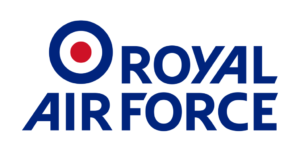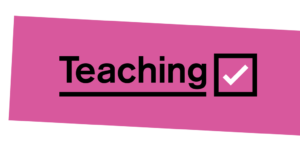Data Analyst careers guide
If you’ve got a head for figures and a flair for problem solving, working as a Data Analyst allows you to use these skills to help your company reach its goals.
Getting into Data Analyst careers
A Data Analyst collects, organises, presents, and interprets data using a variety of techniques. Their job is to turn raw figures into understandable, actionable insights that their company can use to make smarter business decisions, monitor performance, and improve every aspect of how it operates.
Where could you work?
Data Analysts work in a huge range of industries, from colleges, universities, and the public sector through to finance, retail, and marketing.
You work with facts and figures in a digital way, turning data into stories that people can understand and use. That means you can work pretty much anywhere.
How much money can you earn as a data analyst?
These LMI Job Trends give you a sneak peek of how much you could earn starting out for this career, and how much your salary could grow with experience.
Average salary for data analyst jobs
Recent labour market information says you can earn between £20,000 and £60,000 a year as a forensic computer analyst.
Your starting salary as a data analyst can vary because of factors like level of experience, training, or location. It will increase over time as you build skills, knowledge and experience.
Digital Career FAQs & Insights
Is there something you’d like to know about digital careers? Maybe we can help!
Skills you need to become a data analyst
Useful skills to put in your CV:
- Good basic mathematical skills. Specific experience or understanding of statistics will be advantageous
- Advanced computer skills. If you know one or more programming languages, this will be a huge asset
- Excellent written and spoken English. You will need to distil and explain complex concepts to people with different levels of understanding
- An understanding of artificial intelligence and machine learning
- An understanding of data protection and familiarity with relevant legislation
- Problem-solving skills
- An analytical and logical mind
- Self-motivation, as you may be working alone much of the time
- Organisation skills – You need a logical approach to what you do, and your work will consist of lots of data analysis and breaking big problems down into manageable chunks. Good organisation will help with this.
Top Skills-boosting Tips
Learn everything you can about computers in your spare time. You might want to consider taking courses to learn programming languages, or just practice programming on your computer at home. Python and SQL are the most commonly used programming languages by Data Analysts.
How Do You Get These Skills?
Vocational qualifications and work experience will help you build these skills over time.
What Qualifications & Training Do You Need For Data Analysis Careers?
School, college and training
You can become a Data Analyst directly from school if you have the right skills and expertise. At a minimum, a good level of secondary education (typically including GCSEs in English and Maths at grade 4/grade C or above) will be required. Many employers will also ask for further qualifications, such as A Levels, a diploma, or a degree.
T-Levels
T-Levels are a choice for learners after GCSEs alongside apprenticeships and A-levels.
The two-year T-Level course in Digital Business Services is an ideal choice if you are interested in becoming a Data Analyst.
BTECs
As an alternative to GCSEs and A-Levels, you can do BTECs from the age of 16.
There are several BTEC options that can help you get into Data Analyst careers. Here are a few you might want to consider:
- Level 2 Certificate in Information & Communications Technology (ICT)
- Level 3 Qualification in Information Technology
- Level 3 Certificate in Programming
- Level 3 Foundation/Extended Diploma in Computing
- Level 5 HND in Computing (Data Analytics)
You’ll normally need 2 or more GCSEs at grades 9-3 (A*-D) or equivalent for a Level 2 course. If your qualifications are lower than this, you’ll most likely start on a Level 1 course. Level 4 and 5 courses typically require higher qualifications for admission, such as a BTEC at a lower level or A-Levels.
Apprenticeships
An apprenticeship is a scheme where you train while earning a starting salary.
With an apprenticeship (or advanced apprenticeship) you’ll have a paid job with an employer that includes structured training and learning. This training leads to an official qualification that’s recognised by employers as an industry standard.
You can train to become a Data Analyst via an apprenticeship. This will typically take around two years for a Level 4 apprenticeship. Upon completion, you will be in a great position to get a permanent Data Analyst job.
You can seek out data apprenticeships with organisations like Find an Apprenticeship.
University degrees and graduates
You do not necessarily need to go to university to work as a Data Analyst but, in this competitive industry, a degree can help you to get a foot in the door and learn the skills you will need to excel in your career.
You can do Bachelors (undergraduate) Degrees in subjects such as Data Analytics, Data Science & Analytics, and Digital & Technology Solutions (Data Analyst). Subjects such as Computer Science and Mathematics are also good choices.
UCAS has more information on degree courses and entry requirements.
Some courses include a year in industry – or you could organise your own work placement in a company. You might also be able to join a company’s graduate trainee scheme if you have a degree in a relevant subject.
Masters Degrees
If you already have a Bachelors Degree or equivalent qualification, you can get a more advanced degree called a Masters of Science (MSc) in Data Analytics. These courses take 1-3 years, depending on whether you study part-time or full time. Many can also be studied online.
Career Progression
As you gain experience in your Data Analytics career, you could become a Senior Analyst (which comes with more responsibility and a pay rise.) You could also take on a management role.
Skilled analysts are highly in-demand in spaces from government advisory bodies to academic research. You could also go freelance or set up your own business, which allows you to charge higher rates and be more selective about the work you take on.
What Work Experience Do You Need For Data Analyst Jobs?
Work Experience Tips
If you want to become a Data Analyst, any work experience in an IT or programming role will be extremely useful. This could be from a part-time job, freelance work, a work experience placement as part of your school, college, or university programme, or an internship.
You will need to show that you can work under your own initiative with minimal oversight and manage your own time and workload. You will also need to show that you have excellent computer skills and a great head for numbers.
Consider looking for internships and work experience placements in data-driven environments such as marketing, IT, telecommunications, insurance, consultancies, or government organisations.
Examples of relevant work experience include:
- Work shadowing (even if it’s just for a day)
- Work placements in a company
- Work experience placements on a college or university course
Volunteering Tips
Voluntary work of any kind looks great on a CV. If it relates directly to your Data Analyst career goals, that’s even better. Consider taking on IT-based projects, preferably those that involve programming, on a voluntary basis. This might be for a group or club, a local organisation, or a charity. Remember to create a portfolio of your work to show to prospective employers.
You can also undertake additional learning on your own time to boost your knowledge. There are many free and affordable resources you can use to learn more about data, business analytics, computer science, and programming. Look for online or in-person courses, articles, videos, and books from people working within the industry.
If you’re still at school, one way to expand a range of digital skills is to join a school STEM club.
What Does A Data Analyst Do?
What do forensic computer analyst careers involve?
A Data Analyst takes raw information, or data, and turns it into insights that their company can use.
They are highly in demand across a huge number of sectors and can have a real and direct impact on their company’s success.
Being a Data Analyst is a desk-based job, but it’s far more exciting than just number-crunching all day.
Example daily job responsibilities
- Developing and implementing data management protocols
- Designing and carrying out data collection strategies (e.g. customer surveys)
- Analyse the results of collected data
- Search for patterns and anomalies within data
- Compare and contrast data sets to find trends and insights
- Track key performance indicators (KPIs) against relevant data
- Validate and cleanse data
- Ensure all data is kept and used according to Data Protection legislation
- Create visualisations of data such as graphs, charts, dashboards, and presentations
- Present data findings to internal and external stakeholders
- Attend meetings to discuss the meaning and implications of data sets
- Collaborate with other analysts to collect, input, and examine data
How To Find Data Analyst Jobs: Next Steps
To find jobs for young people in this role, search on jobs boards for early career roles and opportunities with these words in the title:
- Data Analyst
- Junior Data Analyst
- Junior Data Scientist
You can also apply directly to organisations for open positions. Check the Jobs or Careers page on the website of the company or companies you’d like to work for, and follow their instructions to apply.
You can also take a look at our database of local opportunities to see if there are any relevant jobs, work placements, or careers events and workshops to help you get started.
Get Into Digital Careers With Youth-Friendly Employers
These employers and organisations are here to help. They care about your potential and desire to learn, not just your qualifications and experience. They may be able to offer traineeships, apprenticeships, graduate schemes, first jobs, careers advice, wellbeing support and much more.
Digital Career Tips & Opportunities
Digital Career Guides
View job descriptions with average UK salary, useful qualifications and a variety of routes into this career.
See All Our Youth-Friendly Employers
London tech careers are in YOUR reach.
Salary? Jobs? Training? You got it. No experience? No problem. You've got the power. We'll give you the support!
London Digital Jobs and Skills Hub





































































YES! I Want More Free Careers Help...
So what are you waiting for? Grab your future.










































